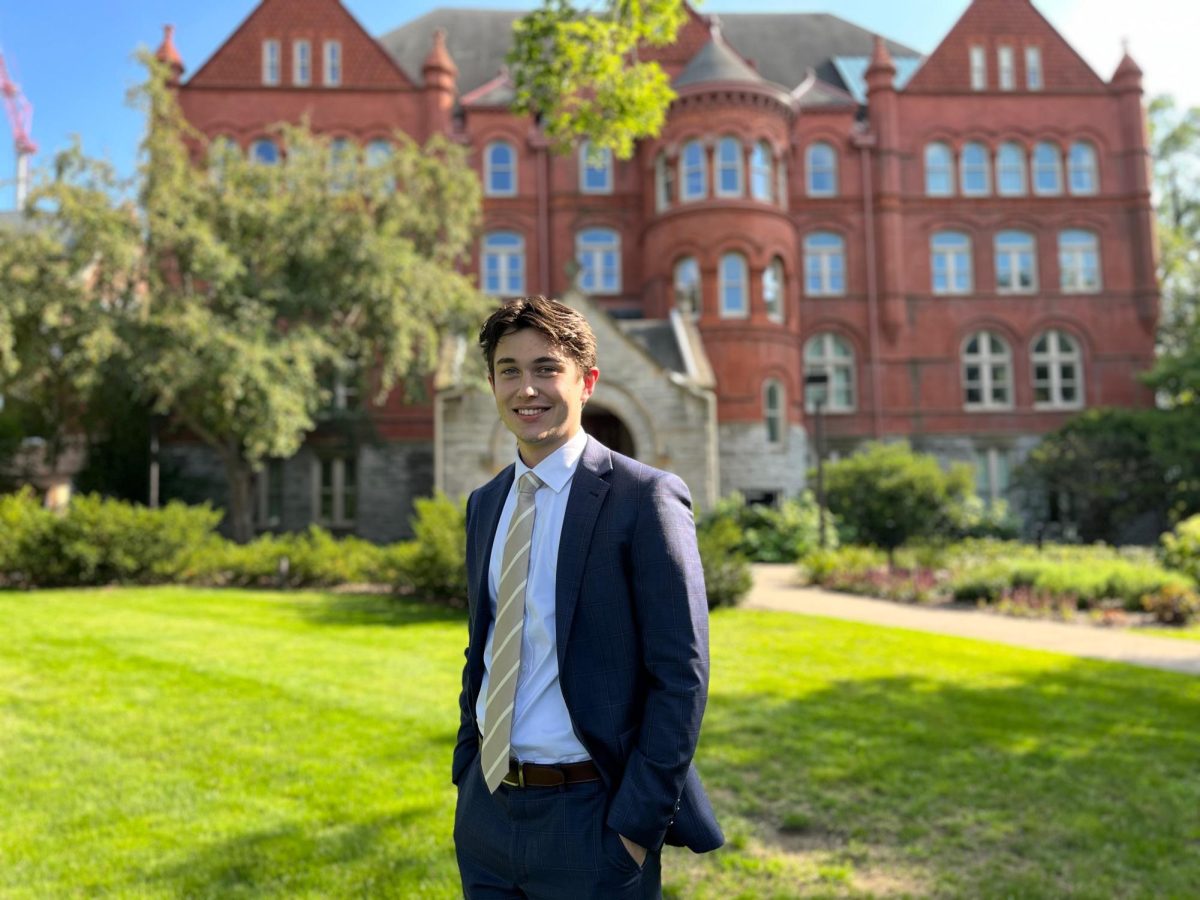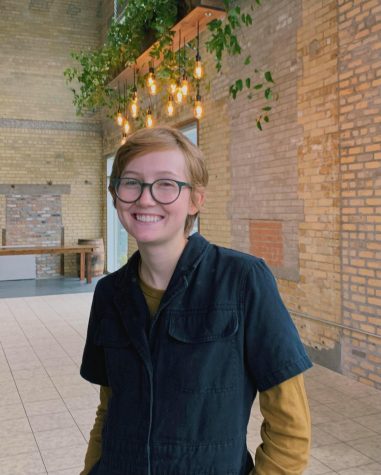Religious studies professor Bill Hart and history professor Crystal Moten addressed a sizeable audience in Weyerhaeuser Chapel on Thursday night speaking about the life and legacy of Dr. Martin Luther King Jr.
The event, titled “Beyond ‘I Have a Dream’: Exploring the Depth of Dr. King’s Work for Justice,” took place on Thursday, January 24, and was sponsored by the Department of Multicultural Life (DML) and the Center for Religious and Spiritual Life (CRSL).
“How do you create a ghetto?” Hart asked the audience gathered in Weyerhaeuser Chapel. “Deny a newly emancipated people 40 acres and a mule.”
Hart focused his message on King’s role in the 1968 Poor People’s Campaign, an economic justice movement. According to Hart, the Poor People’s Campaign is an often overlooked example of King’s activism.
The “Beyond ‘I Have a Dream’” panel was an effort to explore the nuance of the revered civil rights hero’s identity and to question that reverence itself.
Macalester is the Minneapolis host site for a simulcast in honor of King’s holiday sponsored by the General Mills Foundation, the United Negro College Fund and Interfaith Action of Greater Saint Paul. The simulcast was followed by two speakers, a performance by the African Music Ensemble and a discussion about the event.
“Each year, [the panel sponsors] have a different speaker. Then, they have a little bit of a program,” Associate Chaplain for Muslim Life and planning committee member Ailya Vajid said.
“We want to give it a Macalester flavor too. Because it’s good to be connected to a larger movement, but it’s passive to just be taking in a program that you’re watching on a screen that’s happening somewhere else,” Vajid said.
This year Macalester expanded the holiday programming, adding the panel as an avenue for students to examine King’s legacy in a more dynamic way.
“[We] decided collectively that it’d be nice to explore his life and legacy on a deeper level, whether it was to think about the Poor People’s Campaign, or the northern Civil Rights Movement, or his stance on military involvement,” Dean of Multicultural Life Marjorie Trueblood said.
“[We were] really thinking about what other things we could highlight that sometimes are masked by his very famous ‘I Have a Dream’ speech.”
King remains one of the most visible members of the civil rights struggle from 1954 until the time of his assassination in 1968.
Moten discussed King’s famous march for housing equality on the west side of Chicago in 1966, which came three years after and hundreds of miles from his famous March on Washington address.
“Thinking about Chicago, which many people characterized as one of his not-so-successful moments, I wanted to show the struggle of civil rights in the North – that it wasn’t only a southern phenomenon,” Moten said.
“My main goal was to help [the] audience to think about Dr. King not only as someone who worked for civil rights in the South, and also to think about his work more in a national frame, a frame that considered African Americans in the North,” she continued.
Both panelists emphasized the complexities of King and warned against venerating him as a man.
“There is still a danger of a simplified narrative of Dr. King. While there has been some progress about surrounding the narrative of civil rights, we still have to come back to those who only see Dr. King’s major contribution as the ‘I Have a Dream’ speech,” Moten said. “There still is work that needs to be done.”
Moten and Hart spoke on a panel last April commemorating the 50 year anniversary of King’s death.
“Last year, we were thinking about the legacies of Dr. King’s work. Thinking about how his work resonates and reverberates in the present. The panel for this past MLK celebration was trying to think squarely about Dr. King and nuance our understanding of Dr. King and his work,” Moten said.
A more nuanced interpretation of King’s legacy is achieved, in part, by recognizing those that worked alongside him.
Professor Moten attributed King’s failure to make substantive changes in Chicago partially to his failure to meaningfully collaborate with the city’s existing civil rights activists.
“The Civil Rights Movement was not comprised of just Dr. King. There were a number of people and organizations that contributed to the work of freedom and justice in the 1950s and 60s,” Moten said.
Hart echoed this sentiment, citing King’s limited experience with poverty as a source of his shortcomings in the North. King was raised in the Atlanta Sweet Auburn neighborhood, home to some of the most affluent African American families in the nation.
“Martin Luther King was born into the black bourgeois,” Hart said on the panel. “King was isolated from poverty. There is very little indication that King had anything but a distant and a theoretical understanding of what poverty was until pretty late in his life.”
King began to understand poverty by collaborating with others and learning from their experiences. Hart cited Michael Harrington, a socialist leader, as an influential figure to King.
In this spirit of collaboration and education, Macalester hopes to continue hosting a similar panel in years to come, inviting additional voices to the conversation.
“I remember being in high school as a sophomore wondering why we weren’t doing more for Black History Month and MLK,” Trueblood said. “It’s interesting to get to this point and still see how important creating some type of educational experience or opportunity for discussion about King was still as important as it is now.”








Sam McDonald • Sep 11, 2019 at 10:02 am
As the YouTube video clips are posted at this place same like I also embed YouTube video code at my own web page, because it is effortless to get embedded code.
John Lyman • Sep 10, 2019 at 4:43 am
Thankyou for helping out, wonderful info .
Sue Dowd • Sep 8, 2019 at 1:28 pm
some truly quality blog posts on this internet site, bookmarked.
Ray Odaniel • Jul 22, 2019 at 1:02 pm
Mass parsite http://bit.ly/2W9CVkn